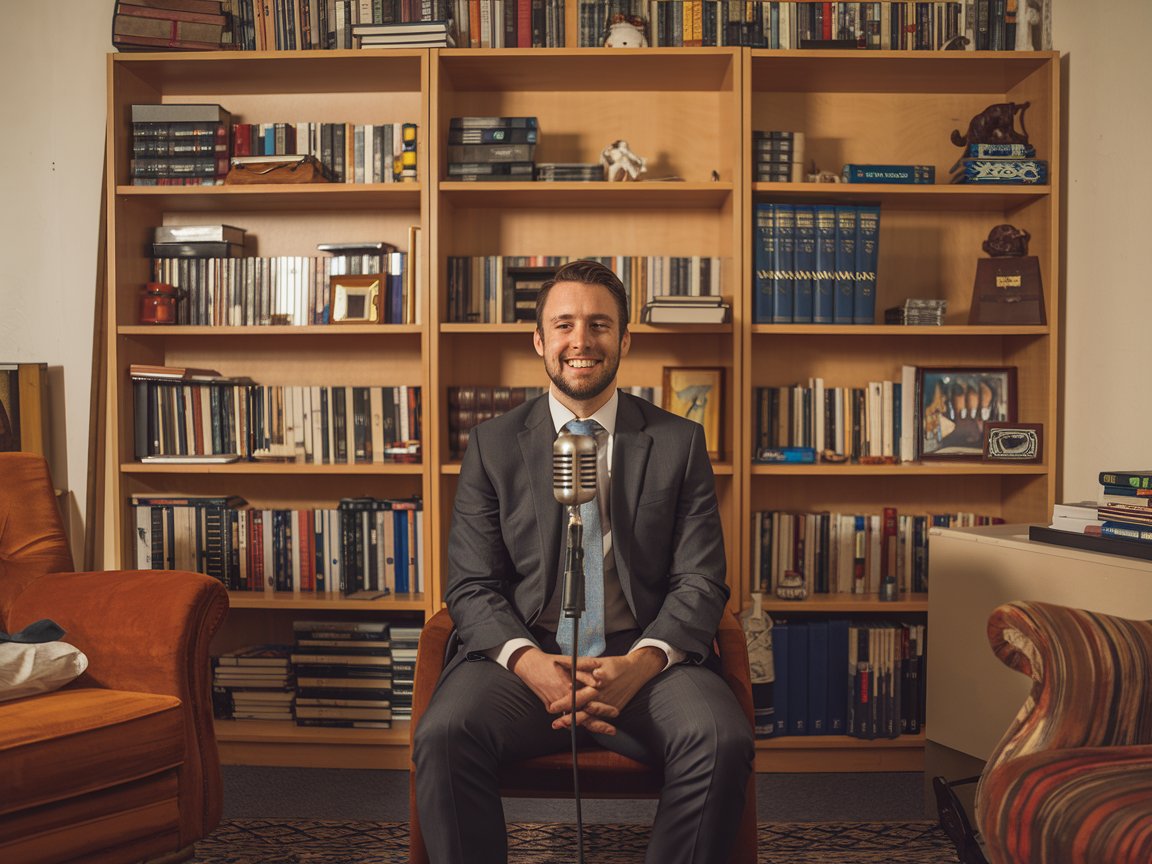
Ethical Voice Cloning: Navigating AIdeaFlow's Impact on Content Creation
In recent years, advancements in artificial intelligence have given rise to innovative technologies, one of the most fascinating being voice cloning. This technology has the potential to revolutionize content creation, allowing creators to produce high-quality audio content with ease. However, the ethical implications surrounding voice cloning are complex and multifaceted. As we dive into this topic, we will explore how AIdeaFlow, a cutting-edge platform for creating AI-powered podcasts and audio content, plays a pivotal role in shaping the future of voice cloning and the ethical considerations that accompany it.
Understanding Voice Cloning
What is Voice Cloning?
- Voice cloning refers to the process of creating a synthetic voice that mimics a real person's voice.
- This technology utilizes deep learning algorithms and neural networks to analyze vocal patterns.
- Applications range from entertainment and audiobooks to personalized virtual assistants.
How Does Voice Cloning Work?
- Voice cloning involves training an AI model on a dataset of a person's voice recordings.
- The model learns to replicate the unique characteristics of the voice, including tone, pitch, and inflection.
- Once trained, the model can generate new audio that sounds remarkably similar to the original voice.
The Rise of AIdeaFlow
What is AIdeaFlow?
- AIdeaFlow is an innovative platform that enables users to create AI-powered podcasts and audio content effortlessly.
- It leverages advanced voice cloning technology to provide a streamlined content creation process.
- The platform is designed for both amateurs and professionals in the audio content space.
Features of AIdeaFlow
- User-Friendly Interface: Simplifies the podcast creation process, making it accessible to everyone.
- Voice Cloning Capabilities: Allows users to create high-quality audio content using cloned voices.
- Customization Options: Offers various voice profiles and styles to suit different content needs.
Ethical Considerations in Voice Cloning
Consent and Ownership
- Consent is paramount when using someone's voice for cloning.
- Voice cloning without explicit permission can lead to legal and ethical issues.
- Content creators must ensure they have the right to use the voice being cloned.
Misinformation and Manipulation
- Voice cloning technology can be misused to create deepfake audio, potentially leading to misinformation.
- The ability to impersonate individuals can have serious consequences, including defamation or identity theft.
- Clear guidelines are needed to prevent the misuse of voice cloning technology.
Authenticity and Trust
- The rise of voice cloning may erode trust in audio content, as listeners might question the authenticity of what they hear.
- Content creators should be transparent about the use of voice cloning in their productions.
- Building and maintaining trust with audiences is crucial for long-term success.
The Role of AIdeaFlow in Ethical Voice Cloning
Promoting Transparency
- AIdeaFlow encourages creators to disclose the use of voice cloning in their content.
- The platform provides guidelines for ethical use, emphasizing the importance of consent.
- Transparency fosters trust and helps mitigate potential backlash from audiences.
Supporting Responsible Use
- AIdeaFlow offers resources and best practices for creators to navigate ethical dilemmas.
- The platform actively promotes awareness around the implications of voice cloning.
- Educating users about responsible content creation is a core principle.
Collaborating with Voice Artists
- AIdeaFlow collaborates with voice artists to ensure ethical practices are upheld.
- By partnering with professionals, the platform supports fair compensation for voice replication.
- This collaboration helps maintain a healthy ecosystem for both creators and voice talent.
The Future of Voice Cloning in Content Creation
Expanding Accessibility
- Voice cloning technology can make content creation more accessible to individuals with disabilities.
- It allows those who may have difficulty speaking to create audio content using their cloned voice.
- This fosters inclusivity and diversity in the audio content landscape.
Enhancing Creativity
- AIdeaFlow's voice cloning capabilities provide creators with new tools to experiment and innovate.
- Artists can use cloned voices to create unique narratives and storytelling experiences.
- The technology opens doors for collaboration between human creators and AI-generated voices.
Personalization and Engagement
- Cloned voices can be tailored to match the preferences of specific audiences, enhancing engagement.
- Brands can create personalized audio experiences for their customers using voice cloning.
- This level of customization can lead to stronger connections between creators and their audiences.
Addressing Potential Risks
Regulatory Frameworks
- As voice cloning technology evolves, there is a need for regulatory frameworks to govern its use.
- Policymakers must consider the ethical implications and establish guidelines to protect individuals.
- Regulations should aim to balance innovation with the rights of individuals.
Technological Safeguards
- AIdeaFlow and similar platforms should implement safeguards to prevent the misuse of voice cloning.
- Features like watermarking or voice recognition can help identify cloned content.
- Technological solutions can assist in maintaining ethical standards in the industry.
Conclusion
As we navigate the exciting yet challenging landscape of voice cloning, it is essential to prioritize ethical considerations. AIdeaFlow stands at the forefront of this movement, providing a platform that empowers creators while advocating for responsible use of voice cloning technology. By promoting transparency, supporting responsible practices, and collaborating with voice artists, AIdeaFlow is shaping the future of content creation in an ethical manner. As we embrace the potential of voice cloning, let us remain vigilant in addressing the associated risks and ensuring that this technology serves to enhance, rather than undermine, the integrity of audio content. By doing so, we can enjoy the benefits of innovation while safeguarding the rights and trust of individuals in the digital age.